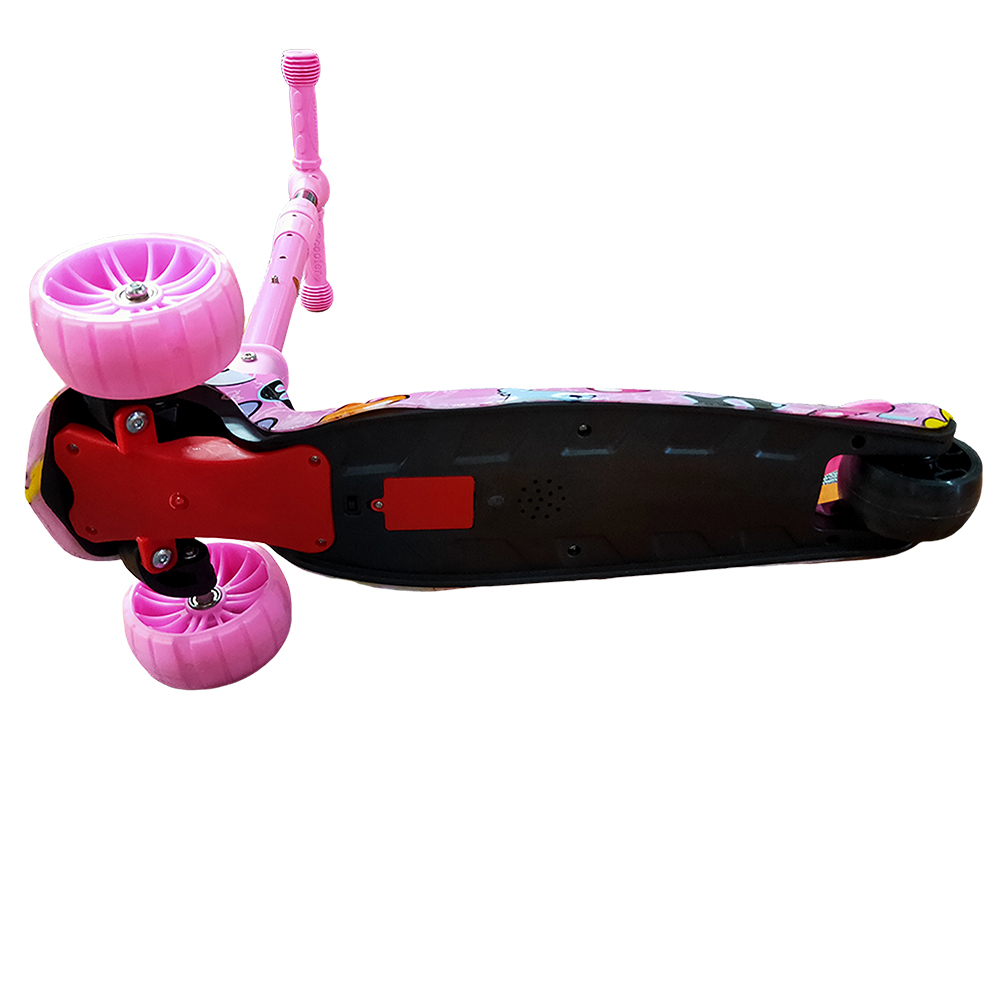The Lesson of Resilience A Kid's Scooter Incident
In today's rapidly changing world, children's interactions can sometimes take unpredictable turns. One such incident that captured the attention of parents and educators was the viral video of a kid throwing a scooter during a fight. Although initially shocking, this event opened up a dialogue about conflict resolution, emotional intelligence, and the importance of resilience.
The video shows two children engaged in a heated argument during a playdate. As tensions escalated, one of the kids, clearly frustrated, picked up his scooter and tossed it aside, signaling a moment of emotional overflow. While some viewers may have laughed at the absurdity of the situation, it raised deeper questions about the emotional health of children today.
Children often find it challenging to express their feelings in healthy ways. The scooter incident serves as a classic example of how frustration can manifest physically when children are unable to articulate their emotions verbally. As adults, we see the importance of regulating emotions, but children are still learning these skills. It's crucial to recognize that outbursts are often cries for help rather than mere acts of defiance.
This situation offers a valuable lesson about conflict resolution. Parents and educators can use it as a teachable moment. Firstly, teaching children to identify their emotions is crucial. When a child feels angry or upset, encouraging them to take a step back and articulate their feelings can prevent physical expressions of frustration. Instead of resorting to throwing objects or shouting, children can learn to express themselves through words, drawing, or other creative outlets.
lehuo kid throws scooter during fight

Moreover, this incident highlights the need for effective communication among peers. Teaching kids to use I statements such as I feel upset when… can empower them to share their perspectives without blaming others. This method promotes understanding and fosters empathy, allowing children to navigate conflicts more amicably.
For parents observing such incidents, it’s essential to react thoughtfully. Instead of punishing the child for their behavior, they should explore the emotions and triggers behind the action. Engaging in conversations post-incident can provide children with the opportunity to reflect on their actions, and it allows parents to reinforce positive behaviors.
Another significant aspect to consider is with the rise of technology and social media. These platforms can amplify conflicts, leading to misunderstandings and escalations that would typically be handled face-to-face. When children witness aggressive interactions online, it can normalize such behaviors in real life. Thus, teaching digital literacy and the impact of online actions is crucial to equip children with the skills to handle conflicts in both the physical and digital realms.
Furthermore, resilience is a critical skill that children must develop. Experiencing failure or conflict is a part of life, and children should be taught that it's okay to stumble as long as they learn from their experiences. The scooter incident symbolizes not just a moment of anger but an opportunity for growth. Encouraging children to bounce back from conflicts and to resolve issues peacefully is vital in building their confidence and emotional strength.
In conclusion, while the incident of a child throwing a scooter during a fight might seem amusing or trivial on the surface, it serves as an important reminder of the complexities of children's emotional landscapes. By fostering communication, teaching conflict resolution, and encouraging resilience, parents and educators can help children navigate their emotions and interactions. Ultimately, it's about guiding the younger generation to handle conflicts with grace and understanding, transforming moments of chaos into opportunities for connection and learning.
-

 Scoot&RideKids Child Kick Push Scooter 3 Wheels with LED Flashing Tilt Lean Boys Girls Scooter
Scoot&RideKids Child Kick Push Scooter 3 Wheels with LED Flashing Tilt Lean Boys Girls Scooter




- 4
$33.17 -

 Scoot&RideKids Scooter Child Kick Flashing LED Light Up 3 Wheel Push Adjustable Folding 3
Scoot&RideKids Scooter Child Kick Flashing LED Light Up 3 Wheel Push Adjustable Folding 3- 0
$25.52 -

 Scoot&RideKids Scooter Child Kick Flashing LED Light Up 3 Wheel Push Adjustable Folding 2
Scoot&RideKids Scooter Child Kick Flashing LED Light Up 3 Wheel Push Adjustable Folding 2- 0
$33.17 -

 Scoot&RideKids Scooter Teens Foldable Kick Push Scooter Adjustable Height Safe 2 Wheels
Scoot&RideKids Scooter Teens Foldable Kick Push Scooter Adjustable Height Safe 2 Wheels




- 4
$49.99
Meet our partners and discover what powers their creativity!
When you register for a Lohas scooter, you will receive a 10% discount on your first order and can be notified of sales, new product launches and other offers in advance.









